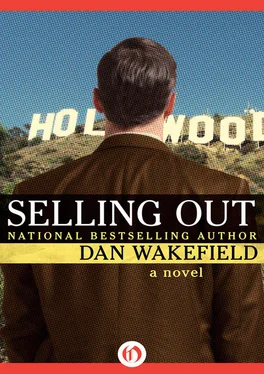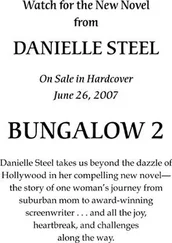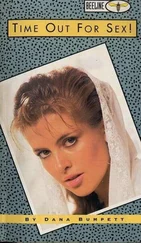“ We’ll get back to you .”
A far cry it was from the bad old days of Hollywood when certain uncouth moguls of legend flung shoes and epithets at actors and treated those writers that circumstance forced to their presence with the gross disdain of an immigration officer confronting a criminal alien. No, if these contemporary men of success in the esteemed field of film production bore any relation to their predecessors it was to the fictional image of Scott Fitzgerald’s Monroe Stahr, that most perceptive and elegant of all tycoons. But unlike Stahr, these new moguls were not doomed by an outmoded system that chained them to a certain corporate fate, but rather, like independent princes, moved about the glittering kingdom as they chose, negotiating their own fate, deal by deal.
Of course, sad to say, there were still throwbacks to the former men of crass behavior and foul language, those who had not learned to modulate their voice or their scorn, especially for writers. Perry took a meeting with one such Neanderthal, a belching young mastodon who munched on a meatball sub while he laid on Perry the disgusting old line about writer’s rights in a deal being known as “the schmuck rights.” A real producer had in fact once used that term to a real writer (maybe more than once, maybe by more than one obnoxious mogul) who of course had recounted the story into legend, so the character Perry had to endure was not even being original, or even au courant , just offensive.
“For God sake, Ravenna,” Perry complained when he got home later and called his culprit agent, “why did you send me to that poor man’s Attila the Hun?”
“Because, darling,” she said with patient, instructive emphasis, “ he gets pictures made .”
That was a phrase Perry was to hear often in the coming weeks, a judgment that separated the men from the boys, as it were, the final, most basic criterion in the whole entertainment community of Los Angeles; or, as articulated in the local argot, this basic, unadorned, do-or-die determinant was—for sure— the bottom line . The only relevant question to be asked of or about a man engaged in the enterprise of producing feature films was not whether he was good or bad, an angel or an ax murderer, benevolent entrepreneur or bestial burner of innocent babes in cradles, but only “Does he get pictures made?” The question is not why or how he gets them made, or how good they are when he gets them made, but only does he get them made.
Take Ned Gurney, for instance. It was sad as hell that Ned couldn’t make it in the movies. It was really unfair, but it seemed with each passing week, hell, every day, every hour, his chances grew fewer, his hope was diluted; no matter what the reasons for his project getting hung up, the bottom line was he hadn’t made it. Maybe he never would. And all his charm and ingenuity and savvy and past accomplishments on Broadway didn’t mean zilch.
Perry was truly sorry. He was not only sorry for Ned’s sake, he also was sorry for his own. He wished they could go on working together, enjoying their easy working relationship, the give and take of ideas and creative insights, the fun of imagining a new scene or story line. If only Ned had made it in the movies Perry could be working with him right now, getting on with his own script instead of just hanging around and waiting for the phone to ring.
All that nice cozy dreaming about making movies with Ned was based on if , and Perry realized now that if was really an East Coast word, an intellectual word, a word that had no place in the lexicon of Los Angeles, a word that fell somewhere below the bottom line .
Besides, the distinguished, successful producers with whom Ravenna had so astutely arranged for him to take meetings were every damn bit as civilized as Ned Gurney! The only problem was none of the admirable gentlemen had called him back.
Perry checked with his answering service several times a day—whenever, in fact, he left the condo for any length of time at all, reasoning that during the twenty minutes he had taken to run some things over to the dry cleaner was probably the very time that the crucial call had come. Usually, however, his only messages were from the few other people he saw for a drink or a dinner, or some kind of telephone salesperson of encyclopedias or hot tubs (he always called them back now, knowing the odds were they were unemployed actors and actresses in need of hearing at least a sympathetic voice and a polite refusal), but with disturbing frequency there were no messages at all. Of course the answering services in Los Angeles—they were surely one of the major industries of the region—were not so downbeat or insensitive as to report that you had no messages, that no one in the whole world had found any reason to call you, so instead of saying anything negative, like “Nothing” or “Nobody called,” the person at the service handling your line said simply, “All clear.”
Perry had begun to wince on hearing those two plain syllables, felt a rush of embarrassment that the person on the other end (probably an unemployed actor—or maybe, even worse to contemplate, an unemployed writer ) knew he was of such small significance that he had no messages at all.
“All clear.”
Perry would mumble a thanks and hang the phone up quickly, trying to put the message—or nonmessage—out of his mind.
After several weeks of hearing nothing at all, Perry took the bull by the horns and called Ravenna to ask what the hell had happened to Phil Clausen. Now there was a guy he had really enjoyed meeting with, a successful producer who had expressed an interest and respect for Perry’s work—he hadn’t actually read any of the stories, nor had he chanced to catch “First Year,” but he had heard excellent comments on both, and was pleased that writers of quality material were now coming out here and trying their hand at film. He seemed genuinely absorbed in Perry’s explanation of the plot he wanted to do in film terms, and said he looked forward to reading the copy of the original short story Perry left with him. Like the others, he promised to get back to him.
Ravenna was in a meeting when Perry called to ask about Clausen, but her secretary promised she’d get back to him as soon as possible. Perry hung around the condo all day, looking out the window and doing the L.A. Times crossword puzzle and watching the soaps on TV, but Ravenna never called back. Sure enough, when the next morning he went out to pick up the dry cleaning, he came back to get a message that she had called while he was out. Even though he was disappointed and frustrated that he’d missed her, he was secretly pleased that he had a message, so the service knew he had some action in his life.
“Listen,” Perry said, speaking with speed and urgency when he finally connected with Ravenna, “what the hell ever happened to Phil Clausen? Shouldn’t I have heard something from him by now? And if not, couldn’t you call him? I mean, the point is, of all the people I’ve met, he’s the one I’d really like to do business with. I honestly felt a rapport with the guy, and I think he would really appreciate the kind of thing I want to do, you know?”
“Darling, I’m afraid Phil passed,” Ravenna said sorrowfully.
“He what? ”
For a moment Perry panicked, wondering if Ravenna was using some L.A. show biz shorthand for passed away. Surely not.
“You mean he gave it to someone else?”
Perhaps he had shown it to some leading director to enlist as a further element in putting together a powerful presentation to offer to a studio.
“Darling, I’m trying to tell you Phil Clausen decided against the project.”
Читать дальше












